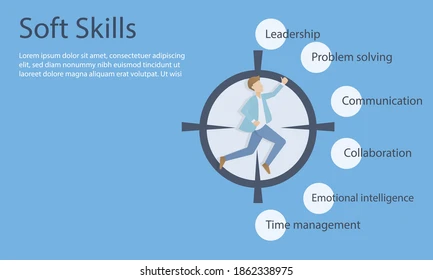
Quality Education based services
Quality education services ensure comprehensive learning, employing innovative methods, skilled educators, and tailored curriculum, fostering holistic development and lifelong success for every learner..
Educational Support
Supporting educational activities.
Soft Skill Development among the youth and students
In today's fast-paced and fiercely competitive world, the significance of skill development for students/youth cannot be overstated. It is no longer sufficient to rely solely on traditional academic knowledge. To thrive in the ever-evolving landscape of the job market and to lead a fulfilling life, students must acquire a diverse set of skills. SAmSA will delve into the importance of skill development, elucidating how it contributes to a student's holistic growth, employability, adaptability, entrepreneurship, problem-solving abilities, self-confidence, life skills, and academic success. Holistic Growth Skill development is a cornerstone of holistic growth for students. Beyond academic achievements, it cultivates a well-rounded individual who can navigate life's challenges with confidence and competence. When students engage in skill development activities, they tap into their creative potential, nurture their talents, and broaden their horizons. This holistic approach to growth encompasses physical, emotional, social, and intellectual facets, allowing students to become more adaptable and versatile individuals. SAmSAs : The Multifaceted Nature of skill development SAmSA’s Skill development isn't limited to one particular domain; it encompasses a wide range of skills that contribute to a student's overall growth. These skills can be categorised into various areas, including: 1.Technical Skills: These skills are specific to certain fields or industries, such as programming, data analysis, or mechanical engineering. Technical skills are essential for pursuing careers in specialised fields. 2. Soft Skills: Soft skills are interpersonal and communication skills that enable students to work effectively with others. These include skills like teamwork, leadership, and emotional intelligence. 3. Life Skills: Life skills are practical abilities that help students navigate daily life successfully. Time management, financial literacy, problem-solving, and decision-making fall into this category. 4. Creative Skills: Creative skills encompass artistic and imaginative abilities, including music, art, creative writing, and design. These skills foster innovation and self-expression. 5. Critical Thinking and Problem-Solving Skills: These skills involve the ability to analyse information, evaluate situations, and devise effective solutions. They are invaluable in both professional and personal life. 6. Adaptability and Resilience: Adaptability refers to the capacity to adjust to changing circumstances and environments, while resilience involves bouncing back from setbacks and adversity. 7. Entrepreneurial Skills: Entrepreneurial skills include creativity, risk-taking, and business acumen. They are vital for those interested in entrepreneurship or innovation. 8. Leadership Skills: Leadership skills empower students to take charge, inspire others, and guide teams toward common goals..